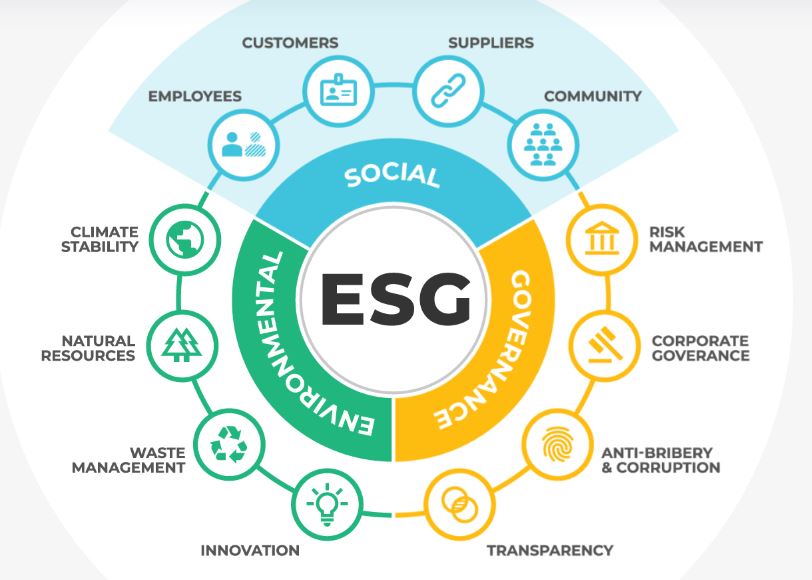
Demystifying the 'S' in ESG

The Environmental, Social, and Governance (ESG) framework is increasingly becoming a central focus for businesses worldwide. While the environmental (E) and governance (G) aspects often receive the most attention, the social (S) component is equally vital, yet frequently misunderstood or underemphasized. Understanding and effectively implementing the social dimension of ESG can significantly enhance a company’s long-term value and stakeholder relationships. This review aims to demystify the ‘S’ in ESG, highlighting its critical elements and illustrating its importance through current statistics and examples.
Understanding the ‘S’ in ESG
The social aspect of ESG encompasses a company’s relationships with its employees, suppliers, customers, and the communities where it operates. Key components include:
1. Diversity, Equity, and Inclusion (DEI): Promoting a diverse and inclusive workplace that values equity.
2. Human Rights: Ensuring fair labor practices and respecting human rights across the supply chain.
3. Community Engagement: Actively contributing to the social and economic development of communities.
4. Employee Relations: Fostering a positive work environment through fair wages, benefits, and opportunities for professional growth.
A well-executed social strategy can transform a company’s operational and reputational landscape. Companies that prioritize social impact often see enhanced trust and loyalty from their stakeholders, improved employee morale and retention, and greater customer satisfaction. For instance, according to a report by EY, organizations with strong social strategies tend to experience better decision-making, increased innovation, and enhanced organizational agility.
CSR REPORTERS recalls that KPMG emphasizes that an effective social impact strategy should align with a company’s overall business strategy, have clear objectives, and address the needs of key stakeholders. This alignment helps reinforce brand values and creates a coherent narrative that resonates with stakeholders, driving sustainable change and long-term value creation.
Current Trends and Statistics
The growing importance of social factors in ESG is reflected in recent statistics:
• Investor Prioritization: A significant 85% of asset managers report that ESG considerations, including social factors, are a top priority within their companies.
• Corporate Responsibility: About 91% of corporate leaders acknowledge their company’s duty to address ESG issues, with social aspects being a key area of focus.
• Challenges in Implementation: Despite the recognized importance, 53% of global respondents believe that poor quality or availability of ESG data and analytics are major obstacles to adopting sustainable investing practices.
Implementing a Strong Social Strategy
To effectively incorporate the social component into ESG strategies, companies should:
1. Define Clear Objectives: Establish clear social impact goals and outcomes, and develop metrics to measure progress. This allows for focused resource allocation and accountability.
2. Align with Business Strategy: Ensure that social initiatives are integrated with overall business priorities, reinforcing brand values and mission.
3. Engage Stakeholders: Identify and address the needs of key stakeholders, including employees, investors, community groups, and customers, to tailor social impact strategies effectively.
4. Leverage Data and Measurement: Use data to track progress and adjust strategies as needed. Regular data collection and analysis can identify gaps and opportunities, ensuring a sustainable and impactful approach.
Conclusion
The ‘S’ in ESG is a powerful component that, when effectively managed, can drive substantial benefits for businesses and their stakeholders. By focusing on diversity, human rights, community engagement, and employee relations, companies can build stronger, more resilient, and socially responsible organizations. As the emphasis on social impact continues to grow, companies that prioritize and integrate social strategies into their core operations will likely gain a competitive advantage and create long-lasting value.
For businesses aiming to navigate the complexities of ESG, especially the social component, leveraging tools and insights from experts like EY and KPMG can provide the necessary guidance and support for sustainable success in this evolving landscape.









